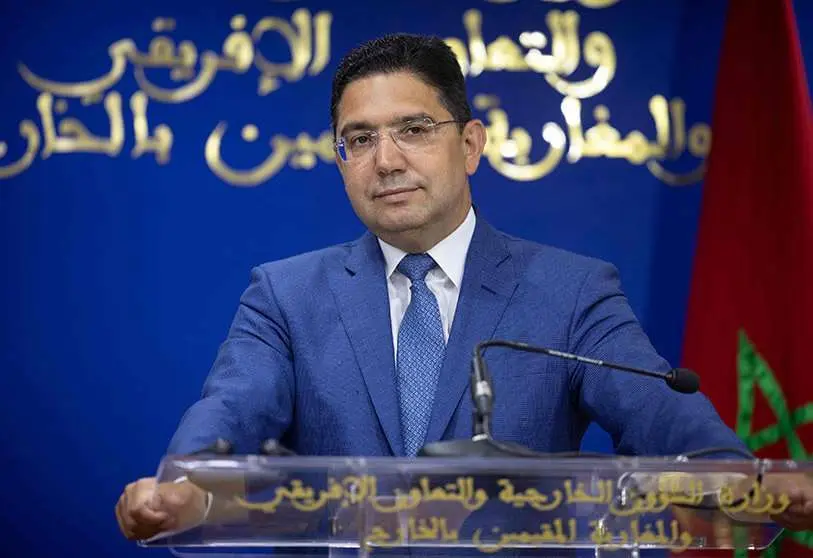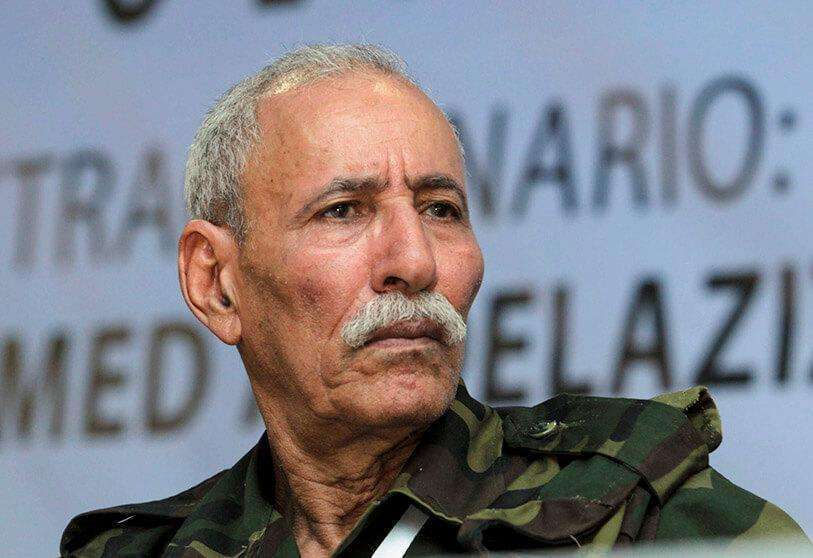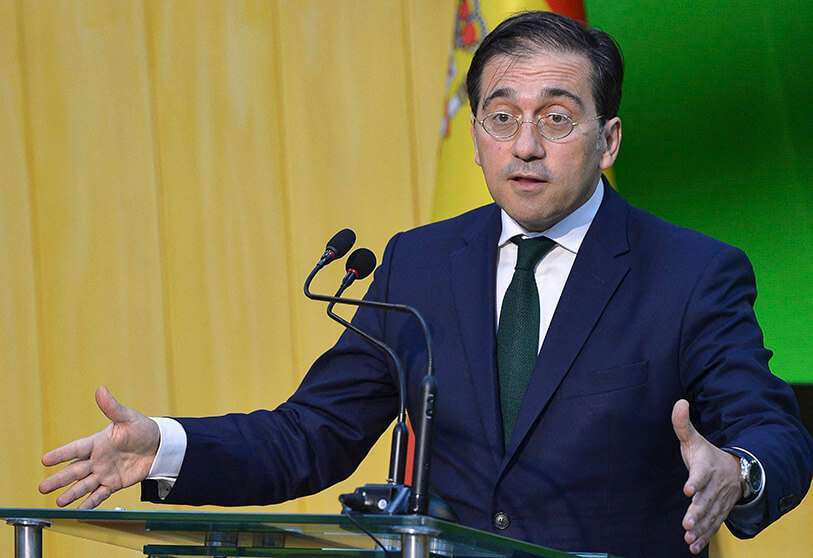La ausencia de los ministros de Exteriores marroquí y argelino marca la cumbre de la UPM en Barcelona

The Union for the Mediterranean (UfM) summit taking place today, Monday, in Barcelona will be the most successful in history in terms of the number of participants. Up to 20 foreign affairs ministers will take part in a summit that returns to face-to-face attendance after being forced to be held telematically last year. However, the event, which will be marked by the COVID-19 crisis and its increasingly wide range of variants, will note the absence of two of the most important ministers in North Africa, those of Morocco - Nasser Bourita - and Algeria - Ramtane Lamamra.
The face-to-face meeting between the Spanish foreign minister, José Manuel Albares, and his Moroccan counterpart had generated great expectation due to the tension generated between the two countries over the reception of the Polisario leader, Brahim Ghali, in April of this year. The former minister at the time, Arancha González Laya, was charged and the 7th Magistrate's Court in Zaragoza is investigating whether a crime of false documentation was committed. After the scandal and subsequent appointment of Albares, the minister held telephone conversations with his Moroccan counterpart, whom he hoped to see at last thanks to this forum, although this meeting will have to wait for the time being.

Both Bourita and Lamamra regretted not being able to attend due to the coincidence with the China-Africa summit that also begins this Tuesday in the Senegalese capital, Dakar. The meeting of the Moroccan and Algerian ministers was another of the most sensitive points due to the serious diplomatic crisis that the two countries are going through after breaking off relations at the end of August. In fact, the trend of the situation, far from being resolved, seems to be increasingly complex in view of a rearmament by the two countries, which are engaged in an arms race.
The sixth ministerial forum of the Union for the Mediterranean will be attended by almost half of its member states. Of the 42 - the 27 from the EU and 15 from the other side of the Mediterranean - 20 of them will be present "despite last minute cancellations due to the new variant of COVID-19", dubbed Omicron by the World Health Organisation. One of the aspects that boosted the turnout of ministers to the summit was the celebration of the first Mediterranean Day yesterday, Sunday.

The pre-summit dinner was attended by the UfM co-presidents, Jordanian Foreign Minister Ayman Safadi and EU High Representative for Foreign Policy and former Spanish Foreign Minister Josep Borrell, as well as Nasser Kamel, former Egyptian Ambassador to the UK and France, and current Secretary General of the Union for the Mediterranean. At this meeting, they began to discuss some of the issues that will be addressed at the event that will take place today and tomorrow in the Catalan city.
The UfM summit is already the second frustrated opportunity for a meeting between José Manuel Albares and his Moroccan counterpart. In September, they had planned to hold a first face-to-face conversation during the United Nations General Assembly in New York, when, like this one, Nasser Bourita cancelled his trip to the United States, postponing without a date a meeting that seems more than necessary. Despite the historically good ties between Spain and Morocco, the normalisation of relations between the two countries has not been complete since the 'Ghali affair', which led to the recall for consultations of the Kingdom's ambassador to the peninsula, Karima Benyaich.

This crisis did not stop there and resulted in the entry into Spain of around 10,000 irregular migrants across the border with Ceuta. Several fronts have already distanced Rabat from the Spanish government, which has not shown the support deemed necessary from the Alawi kingdom on the Western Sahara issue. It is worth remembering that Morocco has the support of important international players such as the United States. Spain has not managed to find the key to closer ties with the Moroccans in recent times, and a new opportunity for a meeting between its foreign ministers is expected, to see if it is true that the third time is the charm.








